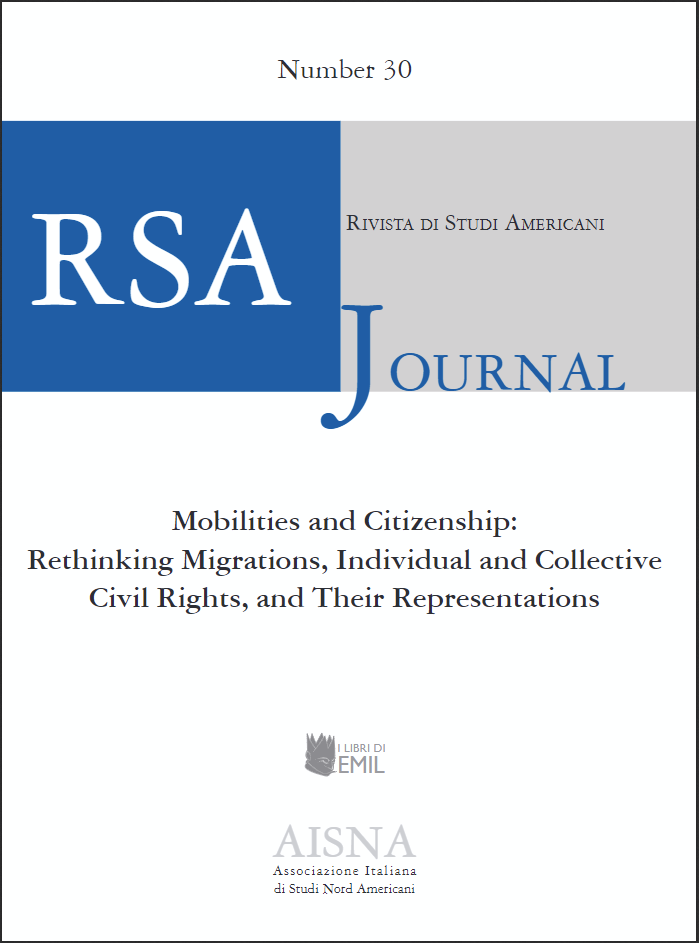“The Girl in the Tangerine Scarf”
Diasporic Muslim Identities in Literary Representation
DOI:
https://doi.org/10.13135/1592-4467/8515Keywords:
hybridity, postcolonial theory, diasporic Muslim identitiesAbstract
This article explores the representation of diasporic Muslim identities in a coming-of-age narrative, Arab American female novelist Mojha Kahf’s bestseller The Girl in the Tangerine Scarf, published in 2006. It examines how the religious diasporic hybrid identity is mobilized within the female protagonist Khadra Shamy, including how she struggles to negotiate her identity across different cultural terrains and gendered, racialised, intergenerational configurations. It attempts to show how these literary representations construct – and help conceptualize – the ways we understand diasporic Muslims in the US. The individual experiences as narrated in the novel illuminate a series of essential socio-political questions facing the community as a religious minority in a secular context. This study addresses these questions through the representation of cultural hybridity in literary narrative within the framework of postcolonial theory. It focuses on three constructs of the novel central to the conceptualization of the female protagonist’s hybrid identity: firstly, the mirror images and moral panics that generate cultural clashes in the East-West encounter; secondly, the predicament of the protagonist’s ambivalent existence as a diasporic individual; and thirdly, the ways she forges her hybrid identity as a New Woman within the diasporic context.
Downloads
Published
Issue
Section
License
RSAJournal will apply a CC BY 4.0 license to all its contributions starting with issue 37 (2026). Previous issues are licensed under a CC BY-NC-ND licence.





